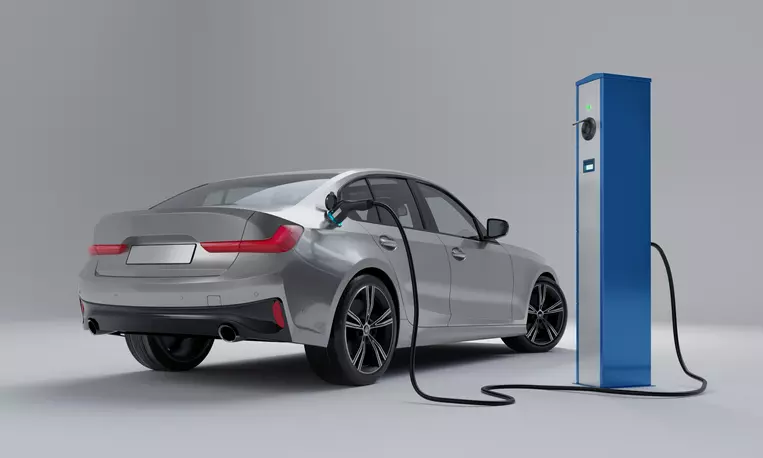
Europeans prefer Chinese electric vehicles over domestic EV
text_fieldsLondon: Chinese automakers are winning over European motorists as they make significant inroads into Europe’s electric vehicle market, battling long-established homegrown brands in an industry that is key to the continent’s green energy transition.
The European Union's decision to investigate Beijing's support for its EV industry, as a result of the competitive threat, has added tech-related tensions between the West and China, one of Europe's biggest trading partners and the largest auto market in the world.
China’s EV onslaught, along with massive US clean energy funding that has drawn investment away from Europe, shows how the 27-nation bloc is caught in the middle of the global race for green technology.
According to an Independent auto analyst Matthias Schmidt, Chinese EV makers are drawn to Europe because auto import tariffs are just 10% versus 27.5% in the U.S. and after China, Europe has the world’s second-biggest EV battery market.
For European climate-conscious car buyers who are struggling with higher living costs, the Chinese EVs are affordable yet packed with features and stylish designs.
A Copenhagen, Denmark, resident Laima Springe-Janssen, who was looking to replace her French-made gasoline-powered SUV with an electric car, ended up buying a compact SUV from China’s BYD even though she initially considered models from Volvo and Nissan.
According to her, the Volvo extras she wanted would have busted her budget, while the Nissan lacked the wow factor. “I really, really love the car,” Springe-Janssen said. For the equivalent of about $50,000, the Atto 3 SUV came with “all these goodies” like a 360-degree dash cam, two years of free charging, and an extra set of winter tires.
British retiree John Kirkwood replaced his Volkswagen Passat three years ago with an MG5 station wagon because the 30,000-pound ($36,000) price tag “wiped the floor” with its nearest rival — a Kia that cost thousands more.
“It’s nice. It’s quiet, it’s refined” and very quick, Kirkwood said, adding that he had few qualms about British brand MG’s Chinese ownership.
MG, owned by China’s biggest automaker SAIC Motor, is the largest Chinese EV player in Europe. BYD, backed by billionaire investor Warren Buffett, is growing fast. There’s also Geely, which owns Sweden’s Volvo and a stable of EV brands including Polestar, Lynk & Co., and British sportscar maker Lotus. Behind them are a slew of startups, like NIO and Xpeng.
Their combined sales are a sliver of the 9.2 million vehicles sold in Europe every year, but they have been gobbling up a piece of the smaller EV market at an astonishing pace.
As per Schmidt’s data, Chinese automakers account for only about 3% of Western Europe’s overall car market but 8.4% of the EV market, up from 6.2% last year and almost nothing in 2019.
The new surge is stoking fears about Europe’s automotive industry, an economic powerhouse centered in France and Germany that employs millions of workers, staying competitive as it transitions from fossil fuels to electricity.
European Commission President Ursula von der Leyen said, “Global markets are now flooded with cheaper Chinese electric cars,” with prices “kept artificially low by huge state subsidies.”
The commission, the EU’s executive arm, formally opened its investigation this month, saying it would take up to 13 months and could result in import duties.
Meanwhile, the Chinese Commerce Ministry said the EU probe is based on “subjective assumptions,” lacks enough evidence, and goes against World Trade Organization rules. Beijing also voiced “strong dissatisfaction” and vowed to “firmly safeguard“ Chinese companies’ rights.
According to data, global automakers build vehicles in China and have exported 164,300 this year to Europe, including BMW’s iX3 SUV made in northeastern Shenyang, and Tesla’s Model 3 and Y produced in Shanghai, which means one in every five EVs sold in Europe is a Chinese import.
Owner of auto brands like Peugeot, Citroen Alfa Romeo and Fiat, Stellantis, has vowed to fight back against China’s EVs. In a recent earnings call, CEO Carlos Tavares said the world’s No. 3 automaker is responding to a “Chinese invasion in a European market” with a new Citroen e-C3 cheap compact.
Executives at Shanghai-based Aiways, a startup headed by Volvo’s former China sales chief, rejected accusations that Beijing provides a helping hand.
“We’re not selling inside China, we’re not being subsidized in China,” said Alexander Klose, vice president of overseas operations.
“Yes, we obviously have some subsidies for putting a plant somewhere, which is, I think, what everybody has in Europe. Aiways is focusing on Europe and Israel instead of China, where the auto market is so crowded that we don’t think it makes sense to compete right now”, Klose said, adding that the EU should be working on getting to a green future “rather than keeping competition out”.
One reason Chinese companies can offer high-quality cars at affordable prices stems from the rules to enter the Chinese market. Global automakers had to team up with local companies, providing them with crucial automaking know-how.
“They were kind of like the sous chefs to the Western companies,” said Schmidt, the auto analyst.
Schmidt said that the situation now is those sous chefs are opening up their own restaurants and, in some cases, better than their masters’ restaurants. Also helping level the playing field is battery-powered motors being less complex to build than internal combustion engines and requiring fewer workers. That’s a problem for European brands with big workforces that will need years to revamp operations.
Meanwhile, Chinese EV makers are trying to stand out in a crowded field. SUV maker Great Wall Motors’ EV sub-brand Ora is targeting women, with cars it says are designed for their body sizes and daily needs.
The Ora Funky Cat, with throwback round headlights, an exclamation mark on its hood badge, and a 32,000-pound ($38,600) price tag, appealed to British scriptwriter Justin Nicholls, who bought one for his wife.
“The looks are awesome, and the tech great. It’s so easy to drive, yet feels like a lot larger car and feels premium,” he said, adding, “I think it is a lot more quirky than European cars.”
With inputs from agencies






















